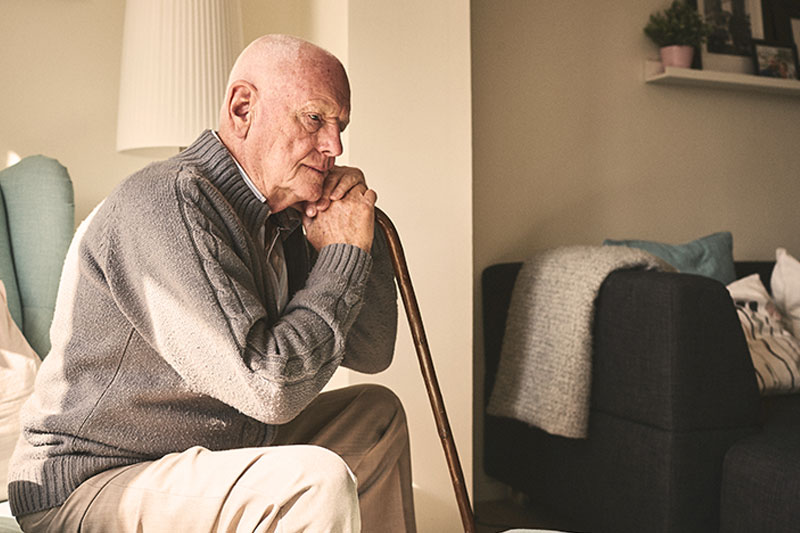
Depression in older adults is a growing issue and something that family caregivers should learn more about.
After spending time with relatives and revisiting treasured traditions and memories over the holiday season, it is typical for a feeling of wistfulness and sorrow to set in for the elderly. And even though some amount of short-lived post-holiday disappointment can be expected, it is essential to understand that it can grow into depression. Depression in older adults is a common and serious mental health condition, and is not a normal part of aging.
How can you know if someone you love has become depressed – and, what can you do to provide support?
First, it is important to understand the risk factors for depression in older adults, which include:
- Loneliness and isolation
- An inactive way of life
- Stress
- Chronic health conditions
- Sleeping problems
- Addictions
- A family history of depression
If a senior you love fits into any one of those categories, or if you are simply worried that the senior could possibly be on the brink of depression, watch out for these red flags:
- Continual feelings of anxiety, guilt, low self-esteem, hopelessness, sadness, or emptiness
- Restlessness, fidgeting, or irritability
- A lack of interest in interacting or participating in previously-enjoyed activities
- Tiredness and lethargy
- Changes to eating or sleeping routines
- Problems with concentration, memory, or decision-making
- Thoughts or discussions about the subjects of death or suicide
- If you suspect depression in a senior you love, take action right away. Depression should never be shrugged off as something the person has to “get over.” It’s a chronic condition that requires medical attention.
A physician will have to evaluate the senior, and can then develop a treatment plan, which may include:
- Medications: There are some effective prescriptions available that can make a significant impact on the way the older adult feels by stabilizing mood-affecting hormones.
- Therapy: A psychologist or other licensed mental health care specialist can help the senior talk through emotions and use treatment approaches such as cognitive-behavioral therapy.
- Brain stimulation: If a senior isn’t responding well to traditional depression therapeutic treatments, ECT or rTMS may be considered, which utilize electrodes or magnets to impact the brain directly.
Additionally, there are things you can do to help avoid depression in older adults you love, such as by encouraging:
- Socialization and involvement in enjoyable activities, including exercise. (Participating with the elderly individual will offer added inspiration and assistance.)
- Following a healthy diet plan and getting at least seven hours of sleep every night.
- Speaking up about their mental health concerns and needs.
An in-home caregiver like those from Abby Senior Care, a trusted provider of home care assistance in Centennial and the surrounding areas, can be incredibly helpful for seniors who are at risk for or experiencing depression. Our caregivers are thoroughly trained and experienced in meeting a wide range of senior care needs in the home, while providing the compassionate companionship to give socialization a boost and to bring a spark of happiness every single day.
Get in touch with our senior care experts at 303-699-8840 for a complimentary in-home assessment for additional details on how we can help improve overall health and wellness for the seniors you love with customized care in the home.
